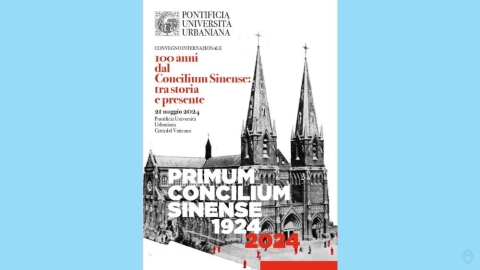Database: Anti-Religious Acts in Real Time

Court of Justice, Chengdu, China
An online database keeping track, in “real time,” of anti-religious acts--especially anti-Christian ones--was recently activated by the Global Christian Relief (GCR) association, one of the principal American whistleblowers dedicated to the protection of Christians throughout the world.
An online database keeping track, in “real time,” of anti-religious acts--especially anti-Christian ones--was recently activated by the Global Christian Relief (GCR) association, one of the principal American whistleblowers dedicated to the protection of Christians throughout the world.
Launched on January 5, 2024, the platform compiles acts perpetrated against the different Christian confessions. Accessible to all, the site lists more than a dozen types of violence, including murders, arrests, abductions, and forced marriages; users can search the database by country, religion, and assailant profile.
Funded by Global Christian Relief, the platform’s own activity is carried out under the leadership of the International Institute for Religious Freedom (IIRF), one of the oldest think tanks specializing in religious liberty.
“We live in a world where the violent persecution of Christians and other religious groups is rampant and increasing,” explains Ronald Boyd-MacMillan. For this leader of GCR, “This database not only helps us track the violence but helps us better understand what persecuted Christians really need from their brothers and sisters around the world.”
David Curry, president of GCR, explains what motivated this digital approach: “we still live in a world where many deny that there is such a thing as the persecution of Christians,” he says regretfully. And he adds: “Providing searchable data and facts in a transparent, accessible way helps combat that misconception.”
David Curry believes that the new platform is the “first and only events-based religious freedom database, which means that incidents are vetted and added to the dataset as they occur.”
For the president of GCR, the new site “connects us with the needs of the persecuted in a greater way. We hope journalists, advocacy groups, and government officials, anyone concerned with violent religious persecution, will see this as a valuable resource.” Concretely, each time that an incident is reported on the site, a team checks its contents, then the database is updated in real time as the checks are completed.
A Good Tool with Limits
It is a useful platform but has its limitations. Nina Shea, director of the religious freedom center at the Hudson Institute, recognizes that GCR is a serious and reliable association, but, according to her, the process employed can still mean that some crimes are overlooked.
Furthermore, according to her, the new platform could in certain cases suffer from the fact that the databases “in general don’t give analysis as to [the] motive for the killing or the context that helps identify the perpetrator. Therefore, it’s impossible to assess its data and say which killings are actually cases of religious violence.”
Nevertheless, the most recent creation of the GCR has the merit of existing; it was officially presented by its creators on the occasion of the International Religious Freedom Summit, which was held in Washington, DC, on January 30 and 31.
As an example of the site’s use, Curry told the Aid to the Church in Need that, according to the data compiled by GCR, Nigeria is “by far the country where Christians are most likely to be killed for their faith.”
He added that other particularly concerning data found by GCR are that India is “the country where Christians are most likely to be displaced” and that China is the country where “Christians are most likely to be arrested.” Finally, Curry pointed out that Nicaragua is the country which has closed the most churches since 2022.
(Source : Catholic News Agency – FSSPX.Actualités)
Illustration : Photo 127899187 © Song Yang | Dreamstime.com





